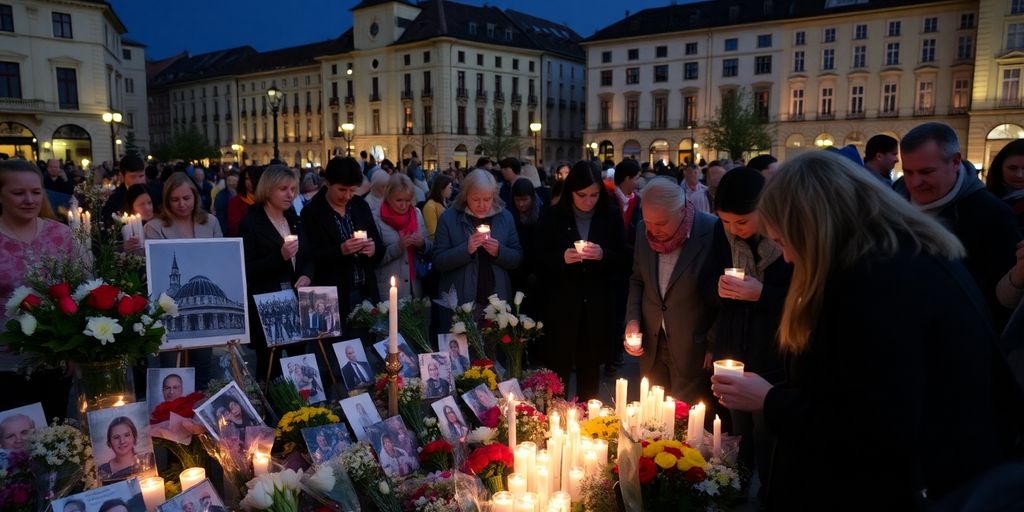On May 2, 2025, the city of Zagreb marked the somber 30th anniversary of the shelling that devastated the Croatian capital in 1995. Mayor Tomislav Tomasevic, alongside survivors and representatives from the Association of Croatian Civilian Victims of the Homeland War, gathered at the Square of May Victims 1995 to honor the lives lost and affected by this tragic event.
Key Takeaways
- Date of Commemoration: May 2, 2025, marks 30 years since the shelling.
- Location: Square of May Victims 1995, Zagreb.
- Casualties: Seven people killed and over 200 wounded during the attacks.
- Historical Context: The shelling was a retaliation against Operation Flash, a Croatian military operation.
- Survivor Accounts: Personal stories shared by survivors highlight the lasting impact of the tragedy.
Historical Context of the Shelling
The shelling of Zagreb occurred on May 2 and 3, 1995, when rebel Serb forces launched two rocket attacks using cluster bombs. This assault was a direct response to Operation Flash, a Croatian military operation that successfully liberated areas in Western Slavonia. The attacks targeted civilian areas, including Pleso International Airport, resulting in significant casualties.
Commemoration Ceremony
At precisely 10:23 a.m., the time the shelling began, Mayor Tomasevic and other officials laid wreaths and lit candles at the memorial site. This act of remembrance was not only a tribute to those who lost their lives but also a moment to reflect on the resilience of the survivors.
Among the attendees was Biserka Marchioli, a survivor who recounted her experience during the attack. "I don’t like to remember it," she stated, emphasizing the emotional toll the event has taken over the years. She was at work on Petrinjska Street when the bombs struck, sustaining injuries that have haunted her since.
A Dark Chapter in Zagreb’s History
Mayor Tomasevic described the shelling as one of the darkest episodes in the city’s history, labeling it a cowardly act of revenge. He recalled the leadership of Milan Martic, who ordered the attacks and later faced justice for his actions at the International Criminal Tribunal for the former Yugoslavia (ICTY).
"Let us remember all the wounded as well," Tomasevic urged, highlighting the importance of acknowledging the broader impact of the shelling on the community. The intersection of Draskoviceva and Vlaska Streets, where many victims were affected, has been memorialized in the square’s name.
Looking Forward
In addition to the wreath-laying ceremony, a special program is planned at the Zagreb Rocket Attack Memorial Centre, in collaboration with the Zagreb City Museum. This event aims to foster discussions on how to better support survivors and ensure that such tragedies are not forgotten.
As the city reflects on this painful chapter, Mayor Tomasevic expressed hope that Zagreb would never again experience such violence, emphasizing the need for peace and remembrance in the face of past atrocities.
Sources
- Croatian Capital Remembers Victims of Shelling on 30th Anniversary, Balkan Insight.





